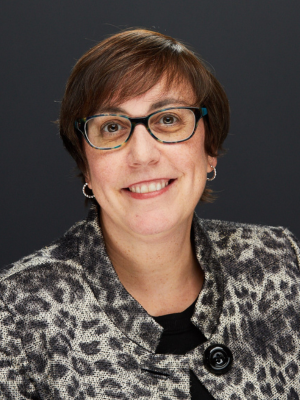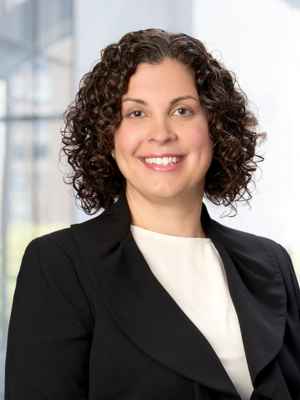(by Paula DiPerna)
Visual ecstasy for free, in theory, is how we’ve largely thought about nature — its beauty timeless and ineffable, and all its systems there around us, stable and present and taken for granted. Aesthetically exquisite, but, unless being drawn upon as raw materials, pretty much doing nothing.
Yet, all of nature is constantly at work, providing countless daily services well beyond the obvious: flowers are lovely to look at, but they provide incalculable pollination services; standing trees can provide lumber, but also soil stability and water filtration when left alone, not to mention sequestering carbon dioxide released into the atmosphere by the burning of fossil fuels and causing climate change; coral reefs offer divers a paradise but, meanwhile, they are invaluable buffers against raging storms to protect the coasts and indispensable nurseries for fisheries. Yet, just to take the coral reef example, we book coastal property at high value, sea views inestimable, but the reefs themselves are assigned no value at all in our conventional accounting systems.
Our Failure to Financially Value Nature
Meanwhile, while nature serves us for free, climate change wrenches our balance with nature, as extremes of weather unleash forces we can neither fully predict, nor prepare for. Dryness and wildfire conditions so plague California, major insurance companies have declared they will no longer write fire insurance for homes and property there. In Florida, flood insurance is essentially impossible to obtain.
We face urgent environmental problems because of a gaping flaw in our financial systems no longer possible to ignore: failure to financially value the ineffable elements of life on which our environmental and social stability now increasingly depend. The result? Intangible indispensable natural assets taken financially for granted and, therefore, essentially laid waste.
Or in perhaps the most dramatic example of under-valuing nature, how can it make sense to value mere conveniences like Uber, nice but utterly dispensable, in billions of dollars, and our atmosphere, or the biodiversity of life on earth, utterly indispensable, at zero?
This skewed accounting has rendered nature economically invisible and the most tragically unpaid laborer in history. Because nature charges us nothing for its services, we have over-used and pushed those services to the brink.
The Paradox of Our Time
And so we must embrace the paradox of our time—pricing the priceless, by definition impossible perhaps, but nevertheless essential. How to do this—assign nature and its intangible services a tangible and economic value that can be transacted and expressed in credible financial terms? In essence this means treating nature’s services and natural resources as indispensable infrastructure and assets, thus requiring ongoing maintenance and care, compared to the current situation, where protecting nature is mostly viewed as a budgetary cost center, where expenditures should be minimized.
Calculating the value of the labor performed by nature, known as “ecosystems services,” continues to evolve but estimates have been as high as $125 trillion per year, higher than global GDP, indicating that ultimately all economic activity depends on environmental health one way or another. But this subsidy nature provides our economy remains largely unrecognized and unseen by conventional finance, thus, so does the risk that the subsidy will break down, leaving us likely startled and without the fallback of nature to which our economy is now addicted.
This spring, Susan Berresford, former President of the Ford Foundation, a visionary in philanthropy and a champion of women leaders, received an honorary degree from Bates College. In her remarks she focused on key questions of leadership, likely indeed to be critical as we confront the entwined economic and environmental challenges ahead.
First, she said, today’s leaders must know “am I comfortable being different?” Second: “Can I thrive in situations of ambiguity? There are very few reform efforts in which the pathway for decision making and action is utterly clear. You need to be ready for confusion and uncertainty; in fact you have to like confusion and uncertainty and find opportunity in those moments.” And thirdly, “Do I enjoy managing struggles with generosity? Leadership usually means you are trying to redistribute authority or power or influence.”
Flipping our economic systems so that nature is economically valued, however paradoxical, requires all these qualities, specifically, the courage to see and act anew.
Depreciation of Natural Assets
Renowned economist, Sir Partha Dasgupta, embodies such radical re-thinking. He was commissioned by the Treasury of the UK government to examine questions of nature’s value, resulting in his landmark 2021 review, “The Economics of Biodiversity.” There, he framed today’s environmental dilemma in terms of financial portfolio management, writing, “The view that the biosphere is a mosaic of self-regenerative assets also covers its role as a sink for pollution. Acid rains damage forests; carbon emissions in the atmosphere trap heat; industrial seepage and discharge reduce water quality in streams and underground reservoirs; sulfur emissions corrode structures and harm human health, and so on. The damage inflicted on each type of asset (buildings, forests, fisheries, human health) should be interpreted as depreciation.”
Fortunately, new investment vehicles are cropping up that value and securitize the benefits of nature—such innovations as the Forest Resilience Bond, being pioneered in Lake Tahoe, California; or coral reef insurance, throughout the Meso-American reef system. Still, however, these are experiments and need to come to scale.
All trend lines indicate that indeed depreciation of our natural systems gallops ahead. Certainly climate change advances, even if in zigs and unpredictable zags, and even the best intended plans to switch to renewable fuels, electrify economies, limit deforestation, encourage recycling and cutting down “carbon footprints” lag dangerously behind.
Pricing the Priceless
Time has come for a radical flip in how we conceptualize nature and its value, and implementing this radical change is perhaps the greatest challenge facing today’s leaders across all sectors, requiring fresh optics and views of economic purpose and where best to invest capital.
An exciting opportunity is at hand for institutional and private investors to redeploy capital and financial assets away from environmental “bads” to “goods,” take on the ambiguities and question conventional financial thinking. Otherwise, we risk remaining mere bystanders to forces at work, and that’s one trajectory we simply cannot afford.
By: Paula DiPerna is the author of Pricing the Priceless: The Financial Transformation to Value the Planet, Solve the Climate Crisis, and Protect Our Most Precious Assets, published in June by Wiley and listed by the Financial Times on its roster of “Best Summer Reading: Economics.” Her novel, The Discoveries of Mrs. Christopher Columbus, published formerly in the US, Germany and Turkey, has just been published in Portugal by Group LeYa. She is a member of the Women’s Forum of New York and the Council on Foreign Relations and is a frequent public speaker. She also currently serves as Special Advisor to CDP.






